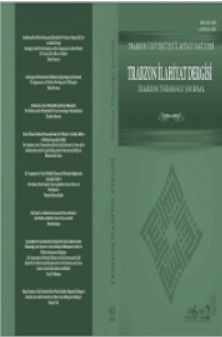Hz. Peygamber’in Teşrî Nitelikli Olmayan Fiillerinin Bağlayıcılık Açısından Değeri
The Value of the Prophet’s Non-Legislative Acts In Terms of Bindingness
Author(s): Mustafa Harun KıylıkSubject(s): History of Law, Islam studies, History of Religion, Sharia Law
Published by: Karadeniz Teknik Üniversites - İlahiyat Fakültesi
Keywords: Islamic Law; Sunnah; Acts of The Prophet; Legislation; Bindingness;
Summary/Abstract: In the terminology of Islamic legal theory (usûl al-fıqh), the Sunnah that is the Prophet’s words, acts and approvals, is the second source of legal provisions. The necessity of following the Prophet as a role model is deduced from the verses that remark his exemplary role for Muslims and command to obey and follow him as well as the verses, which indicate that he has duty of explaining the Qur’an. Islamic legists agreed (ijma) on that if the Sunnah is identified in certain conditions and if its source is prophethood, it is binding all Muslims. However, there are the Prophet’s humanely behaviours, such as eating, drinking, sleeping, dressing and sitting, as well as there are His experiential and non-legislative behaviours, such as trading, farming, military arrangements, opinions on war and advising a medicine for a disease. The Prophet was pointed out in the Qur’an as a good exemplary for all people. This study explains whether or not his non-legislative acts, humanly behaviours and personal experiential opinions is regarded as Sunnah and whether or not such acts would be binding all Muslims.
Journal: Trabzon İlahiyat Dergisi
- Issue Year: 6/2019
- Issue No: 2
- Page Range: 154-194
- Page Count: 41
- Language: Turkish

